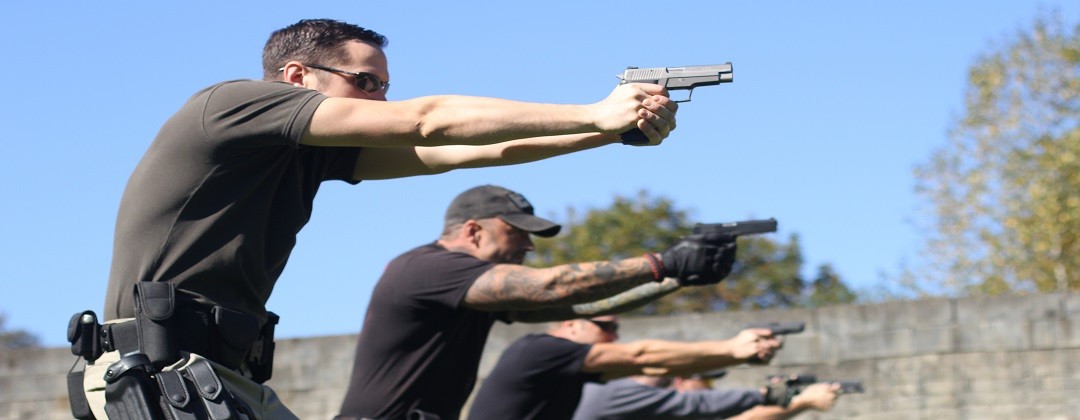This is probably the #1 question I get: Should I get a Glock, a 1911, an XD? Maybe a small revolver? My answer every time is “I don’t know.” There are a lot of factors that go into selecting a pistol, especially if you intend to use it for self defense. If you’re just getting one to punch holes in paper a couple times a year, and then leave it in the safe, buy whatever you want. Its only money. If its going to be used as a tool with the function of keeping you alive should it be put to use, then more thought needs to put into this decision. Here are some of the factors that I recommend you consider:
THE most important factor in selecting a pistol is reliability. If you have to draw your handgun in defense of your life, the last thing in the world you want to hear when you squeeze the trigger is “click.” The gun needs to work every time. There’s always a chance for a mechanical failure with any pistol, and you should be prepared to deal with that immediately, but the objective is to reduce that chance of failure as much as possible. Unfortunately we generally don’t get to put a thousand rounds through a gun before we buy it, so our information is pretty much limited to the reviews of people that own the particular guns that we’re thinking about buying. I’ve spent countless hours reading reviews online and you’ll find good and bad for any gun out there. Some people swear by their XD, others by their Glock. You’ll have to put in your own time to see which guns are the most reliable, but here’s my .02 cents. I was looking at Kimbers for a LONG time. There were many great reviews but a lot of bad ones as well, specifically related to failures during the “break-in” period. A lot of people were saying that a good, tight Kimber wasn’t “broken in” until it had 500 rounds through it. I’ve never owned a Kimber, so I don’t know first hand, but if the action is so tight that it has to be “broken in,” then its too tight to be my carry pistol. I do have extensive experience with Glocks however and would endorse their reliability. I’ve fired thousands and thousands of rounds through my Glock 19 and have never had a malfunction. That’s not to say I won’t, but I’ll take those odds. I also carry a small Smith & Wesson .38 in the summer. Revolvers are generally very reliable, but have other limitations.
Another very important factor is how well it “points.” Handguns will often have different grip angles, meaning the angle between the barrel and the grip is different between makes and models. We all have our own “natural” hand and arm position when we raise a pistol toward a target. Without a gun, curl your finger as if they are wrapped around the grip of an handgun and raise your arm at a “target.” It should feel “natural” and comfortable. That’s your muscle memory, and in a life-or-death situation, muscle memory takes over. Now, raise your arm again, this time change the angle of your wrist up or down. Its probably slightly uncomfortable. You might not think its a big deal, but the real challenge will be raising your arm with the exact same wrist angle consistently. If you find a gun with a grip angle that matches your “natural” hand and arm positions, you’d be able to quickly and accurately point your weapon. Again, if you only shoot for fun, this isn’t a big deal, but if you need to get accurate rounds on target quickly, you want to be able to naturally point the gun.
There are dozens of factors to consider before buying a carry firearm, but I’ll touch on just one more. The pistol has to fit. It has to fit in a couple of different ways. First, it has to fit your hand. You should be able to firmly and comfortably grip the gun and maintain complete control it. Your finger should also be able to reach the trigger so that the pad of the finger rests comfortably on the trigger and you can press it straight back without changing your wrist angle. If your finger doesn’t reach, or goes too far past the trigger, you will likely have accuracy issues.
The firearm must also fit the way you will carry it, in terms of position, comfort, and concealment. I believe it is more beneficial to keep your firearm concealed than to open carry. I’ll leave my reasoning for another post, but if you agree with me, your style of dress will influence the kind of weapon you can carry. If you regularly wear tight-fitting clothes, it will be much more difficult to conceal a larger handgun. More important than concealment however, is comfort. If it is uncomfortable to carry your pistol, you will not carry it for long, and if its sitting in your safe at home, its not doing you any good.
Find a pistol that points naturally, that is comfortable to shoot and carry, and that is super reliable, and you’ll have a great carry firearm. Your best option would be to borrow or rent the pistol you are interested from a friend for a week and see how it fits and shoots.
Good luck!


Recent Comments